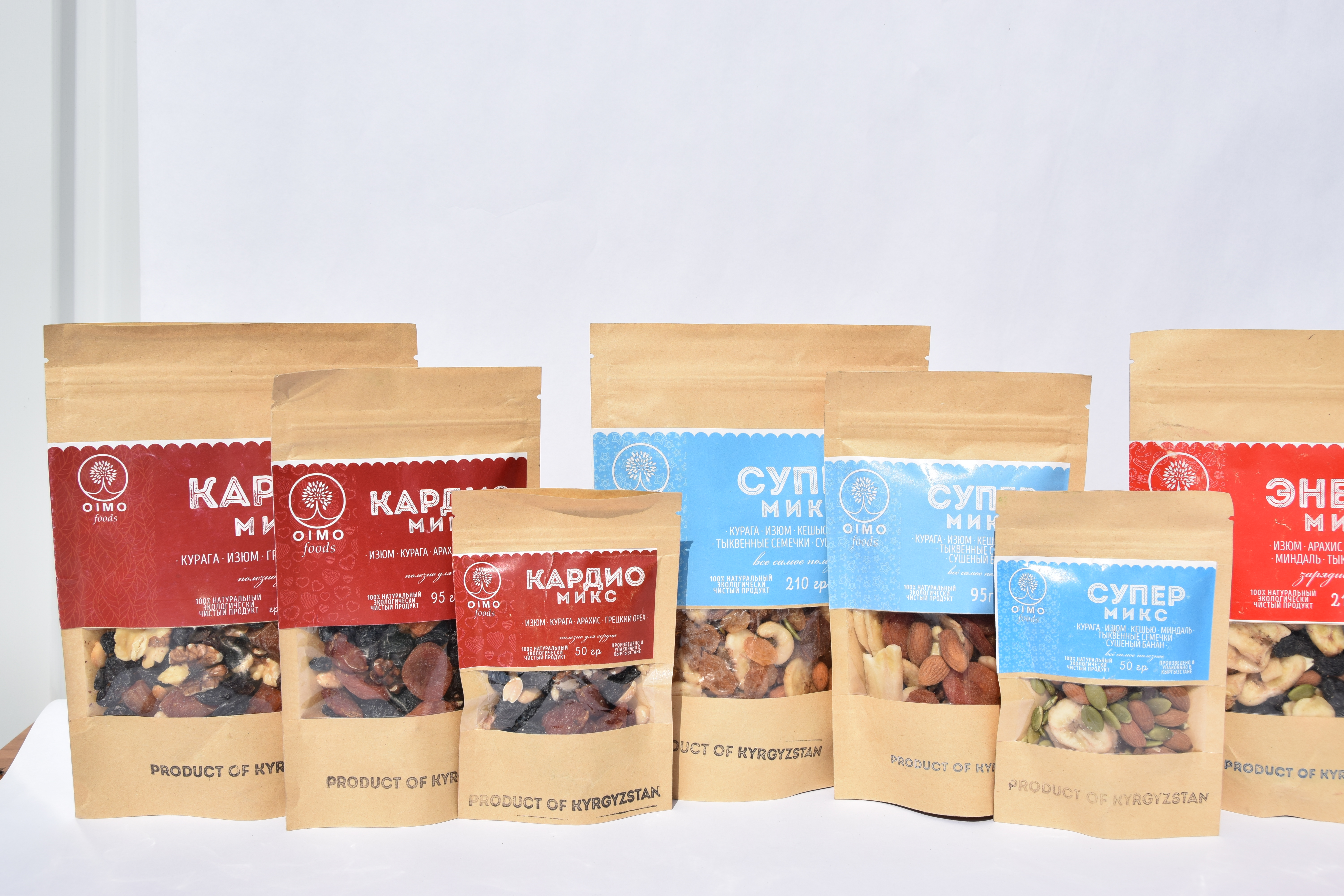
The market research was clear. So far, no one in Kyrgyzstan was packaging dried fruit and nuts as trail mix, a popular snack that combines the two ingredients. Kyrgyzstan was already a large producer of dried fruit, which left the door wide open for a new snack food market to emerge.
Four young entrepreneurs, each thriving in their own field, teamed up to form a new company, Advantex. Their company’s snack mix, produced by Oimo Foods, quickly hit the shelves of shops, pharmacies, and coffee shops, including one within the United States Embassy in the capital city of Bishkek. Despite a growing demand among retailers for their special blend, Advantex hit a snag with low production and quality concerns.
A food technologist helped resolve their spoilage issues, but Advantex still missed out on big contracts because they could not produce enough for retailers. Once the company partnered with the USAID Agro Horizon project, implemented by ACDI/VOCA, in early 2017, a turnaround began.

The USAID Agro Horizon project helped these young entrepreneurs set up a dried fruit processing facility that could process 500 metric tons a year in the Uzgen District of the Osh Oblast. They gained equipment for nut shelling, freeze-drying, salting, and packaging and applied the Hazard Analysis Critical Control Point (HACCP) approach to food safety for export markets.
Asylbek Kumenov, an owner of the youth-owned business, said these improvements allowed their trail mix product to enter new supermarket chains, like Frunze and Globus, and increase supplies to Gazprom, a global energy company, in Kyrgyzstan and Kazakhstan.
“We were able to significantly scale-up our production…Our overall sales grew by 20 percent so far, and we keep growing.” — Asylbek Kumenov, a young business owner supported by the USAID Agro Horizon project
They also created nine new jobs in management, accounting, and processing. With ongoing support from the project, Asylbek and his partners plan to nearly double their processing capacity to 900 metric tons a year, add 440 cubic meters of storage capacity, employ four permanent and 30 seasonal workers, and benefit 2,000 farmers in the Osh, Batken, and Jalal-Abad oblasts.
By June, Advantex will set up a training center for farmers, a laboratory, and a small shop for selling unique Krygyz items to tourists. They will also build a second HACCP-compliant facility for processing, packaging, and storing fruits and vegetables. Because of all this, they will be able to produce another unique product for the Kyrgyz market — freeze-dried apple and other fruit chips.
“USAID’s support came like a miracle when we needed it the most,” Asylbek said.







